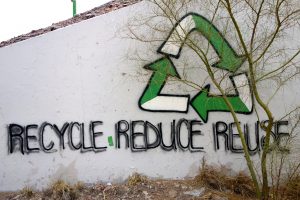My family and I have always preferred getting the plastic bags from the grocery store, rather than buying the cotton ones. This means that I often had to guiltily avoid eye contact with the cashier when they asked if I wanted to buy plastic bags.
What I discovered last week in my chemistry class was, however, that plastic bags are better for the environment than cotton bags are. A study assessing the life cycle of supermarket carrier bags found that in order to have the same environmental impact as a HDPE (High-Density Polyethylene) bag – which is basically the plastic grocery bag – a cotton bag had to be reused 131 times!
When I read this report, I couldn’t figure out how they got this value. I mean, plastic must be worse for the environment than cloth in landfills. With some more digging, however, I found that the production of cotton bags is worse for the environment than the production of plastic. The cotton bag life cycle analysis, which assesses the impact on the environment from a product’s production to end of life, has a larger impact on the environment. It needs to be extracted from non-renewable resources, made in factories, and transported to areas all over the world.
I felt better about using plastic bags after this article, but not completely at ease with my carrier bag decision. The report states that they think the reusable cloth bags are much better in the long run, if they are used more than 131 times. The problem of plastic waste still exists, even though the myth of cloth bags is debunked.
So what can be the solutions to this massive environmental problem?
In the podcast below, presented by Isabel Hardman, they discuss the public misconceptions about replacement of plastic materials. One I found interesting mentions using bioplastics, which are grown organically, to replace the starting material for carrier bags. If I just heard about this on the news, I would believe it is a good idea to use plant-based starting materials. In reality, however, as mentioned in the podcast, the land required to generate enough plastic would be equal to 1/10 the land used for agriculture today. Further, the plastic generated from this material will degrade in landfills to form methane, which is a much worse greenhouse gas then carbon dioxide.
So, the solution to the plastic problem may not be organic sources. In the video below, Leyla Acaroglu, from TED youtube channel, states that the solution has to be in our society’s product designs. She states that the biggest way to stop waste from increasing and thus halt climate change, would be to redesign how our community waste systems and products work to minimize waste in landfills.
So, all in all, many things that we believe are correct for the environment may not be as great as we think. The best thing for us to do is to reuse as many things as we can while trying to control the number of things we throw away. Don’t displace the action on to someone else, start small in your own home.
-Pravnit Kooner

